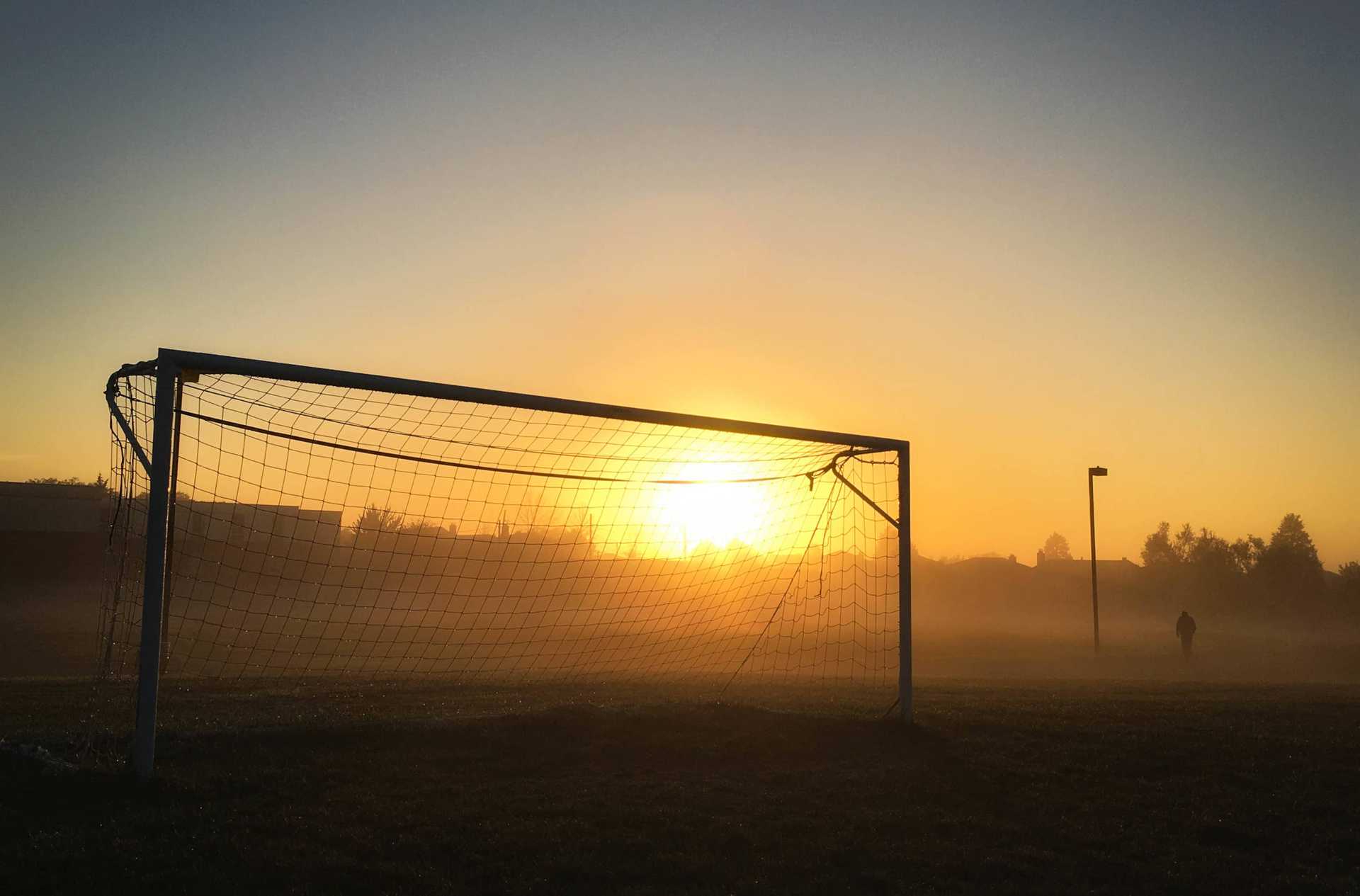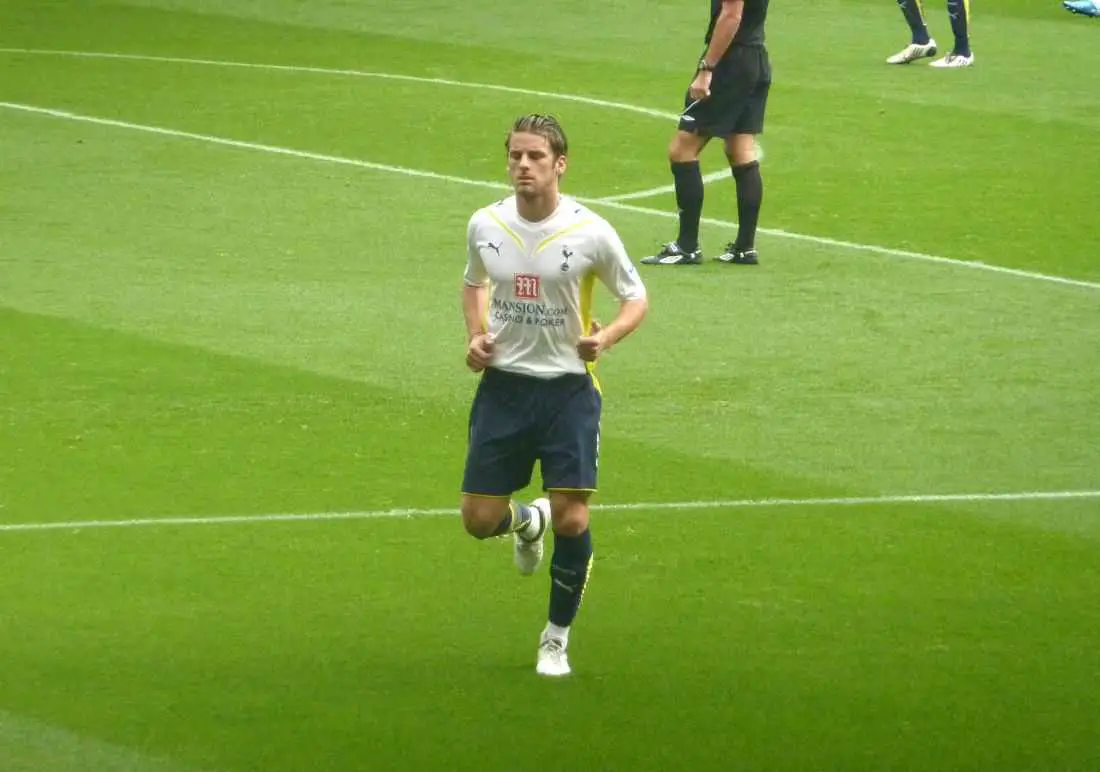When Do Soccer Players Retire?

Retirement from soccer can be a difficult and emotional time for professional players. In this article, we will explore the trends of when players choose to retire and the factors that influence their decision to finally hang up their cleats.
Average retirement age
We collected player data for professional players from 1995 to the present day to analyze the average age at which players typically retire from play. We concluded that the average retirement age across all positions was 36.
We also analyzed the differences that a player's position on the field can influence retirement age, and the results can be seen below.
| Position | Average Retirement Age |
|---|---|
| GK | 38.59 |
| Forwards | 36.26 |
| Midfielders | 35.21 |
| Defenders | 34.18 |
Histogram showing retirement age by position for professional players from 1995 to the present day.
Interestingly, there are noticeable differences in retirement age depending on the position played. As expected, goalkeepers have the longest careers, most likely because the physical demands are not as intense when compared with outfield positions.
However, we were surprised to find that defenders seem to have the shortest careers. We were expecting the forwards to retire earlier, due to the number of sprints that are required in those positions, and subsequent injury risks. However, it seems that the strikers are enjoying the second-longest career durations.
What factors can influence retirement decisions?
There are a number of factors that can influence when a soccer player decides to retire. The most common include injuries, declining performance, and opportunities for coaching or other careers in soccer. Some less common factors can include burnout, mental health problems, and illnesses.
What age do soccer players peak?
The age at which a soccer player will reach their peak ability is of great interest to sports scientists, club owners, managers, and players themselves. Knowing at what age players can perform at their best will affect decisions such as contract terms, transfer fees, and ultimately, when to retire from the game.
Most anecdotal evidence and the views from professionals in the game would suggest that soccer players will peak in their mid to late 20s and that defenders will peak later than their attacking teammates.
This seems to be backed up by scientific research. A study (Dendir, 2016) used performance ratings for players in the European major leagues from 2010/11 to 2014/15 to analyze the optimal age in men's professional soccer and concluded that the average player peaks between the ages of 25 and 27. The study also noted differences in peak age based on the position of the player. The average attacking player peaked at 25, while the average defender will peak at 27. Midfielders will peak in between this range, at 25-27.
Another study (Kalén, Rey, de Rellán-Guerra and Lago-Peñas, 2019) attempted to analyze the evolution of player age over time. The study looked at the age of players competing in the UEFA champions league from 1992-2018 and tried to determine how the players' age related to their market value. They discovered that, statistically, most soccer players are aged between 21 and 29, with an average age of 25.75. After the age of 29, a substantial drop-off in the number of players can be observed.
Age distribution of UEFA Champions League players from 1992–1993 to 2017–2018.
© 2019 Kalén, Rey, de Rellán-Guerra and Lago-Peñas
The study concluded that an aging trend has occurred in the last three decades, with players tending to peak at slightly older ages, and the average age of players increasing from 24.9 to 26.5 years. Several factors may have contributed to this trend, such as increased investments in facilities to sustain players' performances and differences in the physical demands of different playing positions.
The study also found that goalkeepers and center backs tend to peak at later ages than attackers and peak performance can last until the age of about 31. The market value of players peaks in the 26-30 age range and then declines, with attackers tending to have higher market values than defenders.
Effect of peak age on contracts
As a consequence of the conclusions made by these types of studies, some professional clubs will adopt a contract policy where they will only offer shorter contract lengths for players over the age of 30. Arsène Wenger was a big supporter of this strategy and is thought to have believed that a player is physically finished by the age of 30.
"I would say the players are the most efficient between those ages (23 - 30). It takes you four or five years to really learn the job, not to be caught doing stupid things and to have an average consistency in your performances. Then at 30, sometimes your body lets you down a little bit, so between those ages is the peak."
This policy can often anger players and fans alike, as it will usually result in the club's most influential players leaving to find a better contract offer elsewhere. The argument is that the policy is too rigid, and it is not impossible for older players to still perform at a high level. Older players are believed to be able to read the game better, have better anticipation on the field, and have a stronger mentality to deal with pressure situations.
Retiring early due to mental health issues or burnout
Professional soccer players and athletes in general are put under immense pressure and stress during their careers, which can result in poor mental health, which can sometimes result in the decision to retire prematurely.
The term 'burnout' is used to describe a player's mental and physical exhaustion from training and competing, causing resentment and loss of interest in the game. A player experiencing burnout may feel that the rewards are no longer sufficient to warrant the effort and sacrifices that are being made. Once a player reaches this individual threshold, some things that may help include taking some time away from the sport, changing the training environment, or modifying the training schedule. If none of these strategies are successful, then sometimes a player may decide to retire from the sport completely.
David Bentley

David Bentley playing for Tottenham | flickr photo by wonker shared under a Creative Commons (BY) license
David Bentley retired from professional soccer at the age of just 29. Bentley was in the middle of a very successful career, having made a total of 201 appearances for clubs including Arsenal and Tottenham, and had also earned 7 caps for England. He claimed that he had simply fallen out of love with football. He described how the game had become 'robotic', and that he found the sport boring and predictable.
"I've just had little baby twins, three months old, and I’ve got a little four-year-old and I want to focus on that. My love for the game went a little bit and I didn’t want to carry on just for the fact of paying me money"
Michael Johnson
Michael Johnson was a soccer prodigy who emerged on the scene in 2006, playing for Manchester City. His early performances were so promising, that many were tipping the young player to be a future captain of the team. However, he would go on to retire at the age of just 24, after a number of injuries and suffering from poor mental health. Johnson explained that he had problems with the feelings of being defined as just a soccer player, and felt that there must be more to life than avoiding injuries and struggling to maintain fitness every day.
"I was thinking is this all there is? Is this just what I’m going to be forever or is there something else? I don’t want to be defined by football ... I didn’t like the person I was becoming, I didn’t like myself"
Johnson's problems with injuries led to anxiety and low confidence, which led to the decision to see a psychologist and ultimately retire from the game. Johnson has no regrets about his decision and claimed that he would be open to returning to soccer in some capacity to raise awareness of mental health for players.